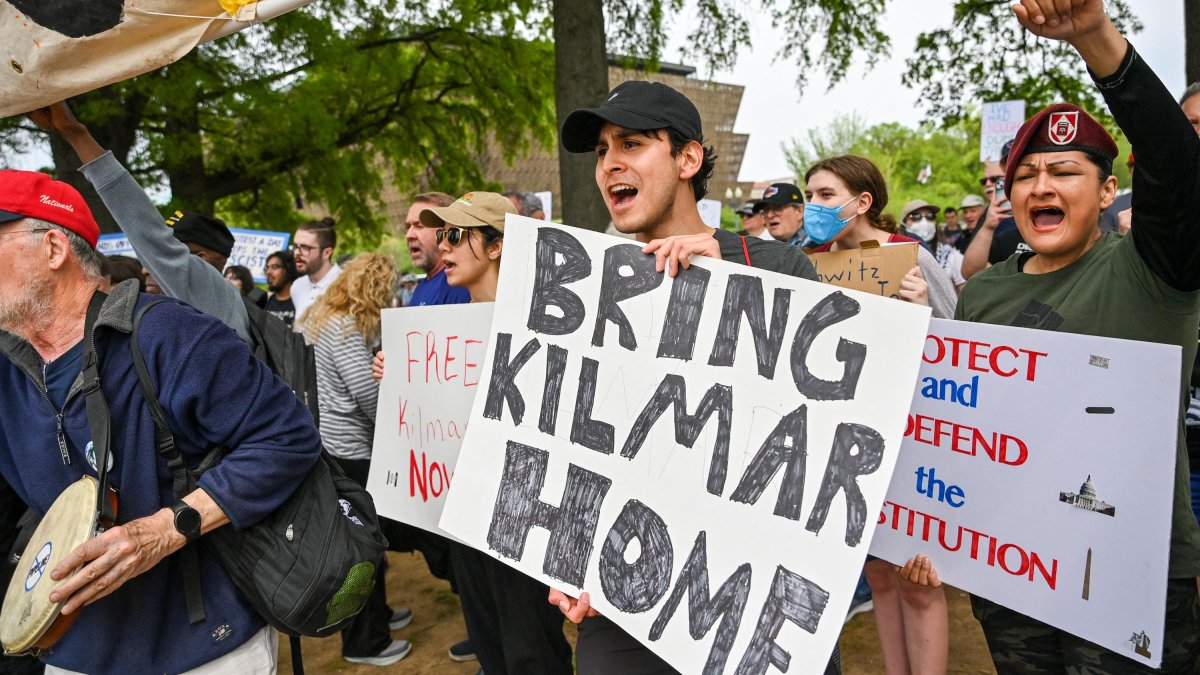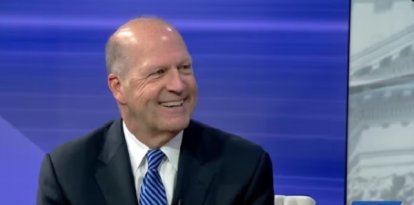A federal judge delayed the release of Kilmar Abrego Garcia for fear that he will be deported before trial
According to Garcia's lawyers, the White House's "contradictory" statements about their client's fate are a cause for concern.

Protest in favor of Abrego Garcia/ Richard Pierrin.
A federal judge in Tennessee postponed the release of Kilmar Abrego Garcia. While Judge Barbara Holmes already set specific conditions for his release, she fears that Immigration and Customs Enforcement (ICE) authorities will deport the Salvadoran once he leaves jail.
According to Garcia's lawyers, the White House's "contradictory" statements about their client's fate are a cause for concern. Through a brief sent to the court last Friday, the legal team remarked that "we cannot put any faith in any representation made on this issue."
"In a just world, he would not seek to prolong his detention further," they added, arguing that their client was brought back with the intention to deport him before he had a chance to defend himself at trial.

Politics
El Gobierno contempla deportar nuevamente a Kilmar Abrego, pero no a El Salvador
Sabrina Martin

Politics
Biden's immigration crisis cost $9.2 billion to states and local communities in 2023
Santiago Ospital
Although Judge Holmes had already laid the groundwork for his release, finding that he was not a flight risk or a danger to the community, she decided that Abrego Garcia would remain in jail while awaiting trial on human trafficking charges.
Garcia, an illegal immigrant who was deported to El Salvador and accused by the State Department of being a member of Mara Salvatrucha (MS-13), recently returned to the United States to face federal charges of transporting immigrants into the country without legal authorization.
"The grand jury found that over the past nine years de Rego Garcia has played a significant role in an alien smuggling ring. They found that this was his full-time job, not a contractor. He was a smuggler of human beings, children, and women. He made over a hundred trips, the grand jury found, smuggling people throughout our country. Members of the MS-13, a violent terrorist organization across the country," Attorney General Pam Bondi said in early June.
As for the Salvadoran's history, he entered the United States illegally in 2011. While he received a deportation order eight years later, U.S. authorities determined that the 29-year-old could not be deported to his home country for fear of persecution.
However, he was deported to El Salvador in March of this year and sent to the maximum security prison known as CECOT. Subsequently, the Department of Justice acknowledged that this action was the product of an "administrative error," and the U.S. Supreme Court ordered the Trump Administration to "facilitate" his return to the country, a process that was completed last June 6.

























